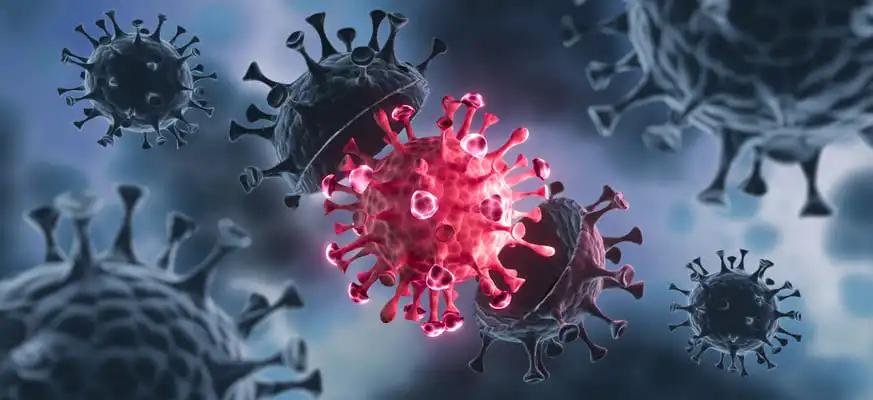KEY TAKEAWAYS
- A recent phase II trial showed promising results with axitinib (a VEGFR inhibitor) and avelumab (a PD-L1 inhibitor), in patients with R/M ACC.
- The efficacy of axitinib plus avelumab in patients is evaluated with R/M ACC, with primary endpoints of ORR, DCR, and PFS, and secondary endpoints of gene expression profiles associated with treatment benefit.
- Angiogenesis-related genes showed no significant upregulation in the benefit group, contrary to previous findings in renal cell carcinoma patients on the same treatment.
Adenoid cystic carcinoma (ACC) is a rare and aggressive cancer with no standard treatment for recurrent or metastatic (R/M) disease. Two ACC subtypes were identified, ACC-I with poor prognosis (median survival 3.4 years) due to NOTCH activating mutations and MYC overexpression, and ACC-II with an indolent course (median survival 23.2 years) characterized by upregulated TP63. The study explored whether ACC subtype and gene expression could predict the response to axitinib plus avelumab in patients with recurrent/metastatic adenoid cystic carcinoma (R/M ACC).
In this study a cohort of 28 patients with R/M ACC, all experienced radiological or clinical progression (6 months of enrollment) in the axitinib plus avelumab trial. Utilizing the HTG Transcriptome Panel [HTP], a target transcriptome profile consisting of 19,616 probes was generated. ACC subtypes (ACC-I vs. ACC-II) were identified based on gene expression. For each ACC subtype, Overall Response Rate (ORR), Disease Control Rate (DCR), and Progression-Free Survival (PFS) per RECIST v1.1 was assessed.
Gene analysis assessed the benefit versus no benefit from axitinib plus avelumab in both the overall population and individual ACC subtypes. Benefit was defined as achieving disease control (Partial Response [PR] or Stable Disease [SD]) and a PFS longer than the median PFS. Notably, PFS > 6 months was not considered as a benefit criterion due to significant differences in PFS between ACC subtypes.
A total of 28 patients were classified into ACC-I (50%, 14/28) and ACC-II (50%, 14/28). For ACC-I, the ORR was 14.3% (2/14; 95%CI: 1.8-42.8%), the DCR was 35.7% (2 PR + 3 SD; 95%CI: 12.8-64.9%), and the median PFS was 1.86 months (95%CI: 1.81-8.61 months). In ACC-II, the ORR was 21.4% (3/14; 95%CI: 4.7-50.8%), the DCR was 100% (3 PR + 11 SD; 95%CI: 76.8-100%), and the median PFS was 10.5 months (95%CI: 7.40-NA). ACC-II demonstrated significantly longer PFS than ACC-I (HR 0.19 [95%CI: 0.08 – 0.49], p = 0.0002). Using the defined benefit vs. no benefit cutoff, ACC-I had a 42.9% (6/14) benefit rate, and ACC-II had a 50.0% (7/14) benefit rate. Benefit in all ACC patients, ACC-I, and ACC-II was linked to elevated expression of immune-related genes, especially those related to B and T-lymphocyte function.In contrast to prior findings in renal cell carcinoma patients on the same treatment, angiogenesis-related genes did not show significant upregulation in the benefit group.
The combination of axitinib and avelumab showed promising efficacy in patients with ACC, particularly in those with the ACC-II subtype. Gene expression analysis identified potential biomarkers predictive of treatment benefit.
Source: https://ascopubs.org/doi/10.1200/JCO.2023.41.16_suppl.6096
Clinical Trial: https://www.clinicaltrials.gov/study/NCT03990571
Camilla Oliveira Hoff, Daniel McGrail, Simon Heeke, Luana Guimaraes de Sousa, Kaiyi Li, Diana Bell, Yoshitsugu Mitani, Mario L. Marques-Piubelli, Maria Angelica Cortez, Shiaw-Yih Lin, Yasir Y Elamin, Adel K. El-Naggar, Renata Ferrarotto. DOI 10.1200/JCO.2023.41.16_suppl.6096, J Clin Oncol 41, 2023 (suppl 16; abstr 6096)



